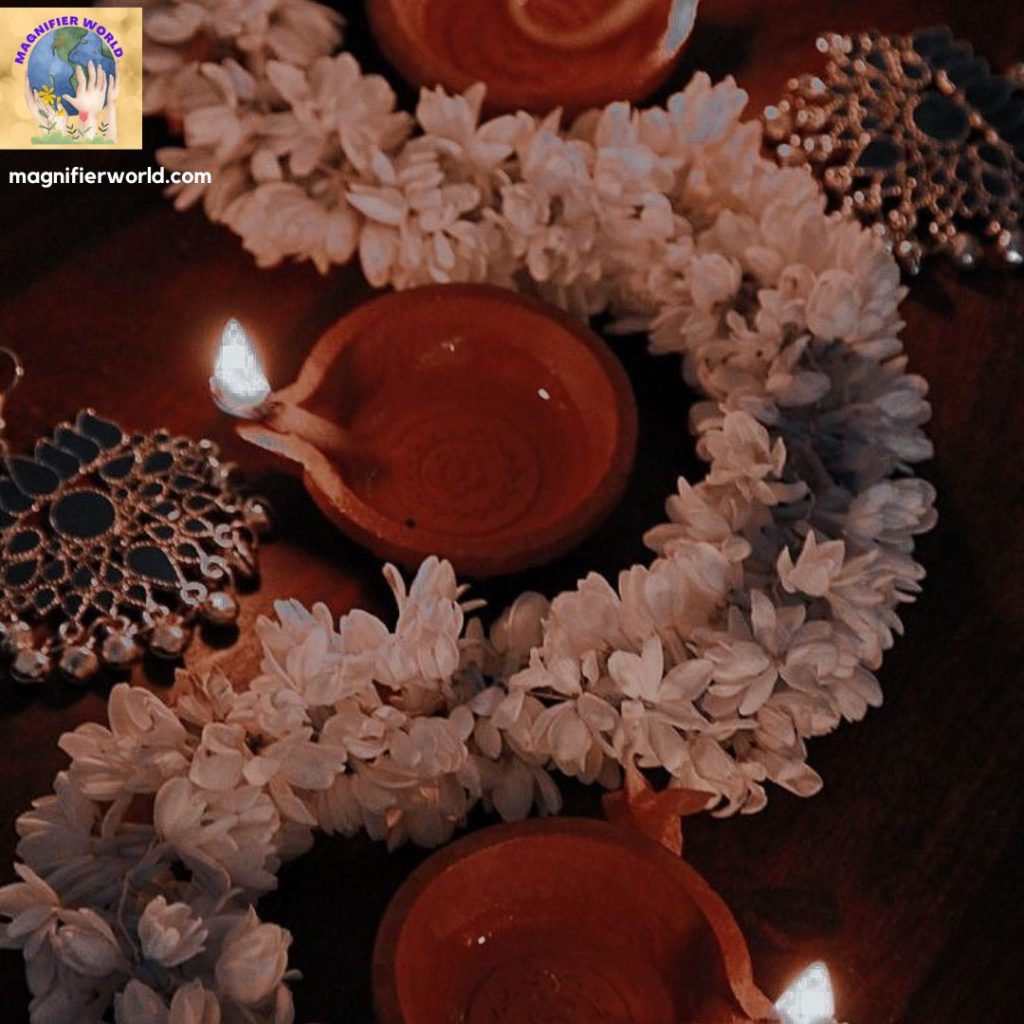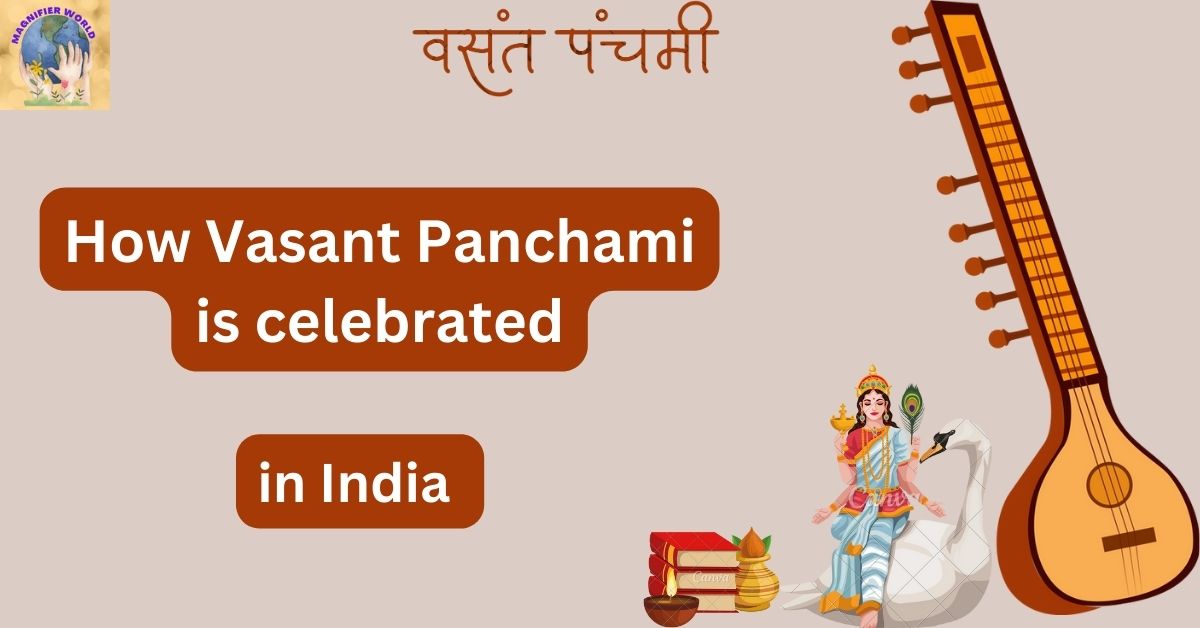Why do we celebrate Diwali? What is the meaning of Deepavali? there are many questions in our minds so let’s get to know all things
Deepavali, another name for Diwali, is one of the most extensively observed Hindu holidays in India and around the world. Deeply spiritual and culturally significant, this festival of lights unites people from all walks of life in a peaceful celebration of light triumphing over darkness, knowledge over ignorance, and good triumphing over evil.
Rooted in ancient Hindu mythology, Diwali celebrates the victory of virtue and righteousness—the victory of Lord Rama over the demon ruler Ravana. This epic story from the Ramayana emphasizes the value of maintaining moral principles and the cohesiveness of familial ties.
Along with honouring the goddess of riches and prosperity, Lakshmi, the festival also involves decorating homes and burning lamps. To welcome her blessings, people clean and adorn their houses, and gift-giving and sweet-sharing are symbolized by the exchange of gifts.
Diwali is a time when people reflect on their lives and try to replace their ignorance and inner darkness with knowledge and light. It’s a moment to forgive past wrongdoings, rebuild damaged relationships, and fortify ties with loved ones.
This essay will examine the deep cultural and spiritual meaning of Diwali, the variety of its festivities, and the continuing causes of our ardent and enthusiastic celebration of this holiday.
1. Victory of Light over Darkness
Why do we celebrate Diwali? The festival’s deep spirit—which resonates with the desire to celebrate the triumph of virtue over evil and light over darkness—is summed up in this core question.
The ancient Hindu classic the Ramayana is the source of the question, Why do we celebrate Diwali? An emotional reminder of Lord Rama’s victorious return to his realm of Ayodhya following his defeat of the demon king Ravana is provided by Diwali. This epic story emphasizes how important it is for good and righteousness to triumph over evil and ignorance. This message is portrayed powerfully on Diwali by the lighting of oil lamps, or diyas, and the magnificent fireworks display.
Diwali offers a personal journey towards enlightenment within a wider spiritual environment. Several people utilize the day to reflect and work on their development, reinforcing the question, Why do we celebrate Diwali? The celebration invites us to travel toward inner illumination, reflecting the restoration of light and goodness to Ayodhya upon Rama’s return.
Why do we celebrate Diwali? invites us to embrace these eternal principles as we honour the enduring message of hope, positivity, and the unyielding human spirit by celebrating Diwali.
2. Worship of Goddess Laxmi
Why do we celebrate Diwali? This inquiry explores the festival’s spiritual and cultural facets in addition to the triumph of light over darkness. Worshipping Goddess Lakshmi is the solution, and Diwali is a time for introspection and rejuvenation.
Why do we celebrate Diwali? Obtaining the blessings of Goddess Lakshmi, the Hindu goddess of wealth and prosperity, is one of the main motivations. It is thought that she makes her visits to people’s houses by cleaning, decorating, and lighting them with candles and lamps on this auspicious day. To ask for her favour, devotees do unique pujas and prayers.
Why do we celebrate Diwali?
The answer is rooted in the aspiration for prosperous finances in the upcoming year. People think that if they please Goddess Lakshmi, she will provide them with favors that will guarantee their wealth and well-being in business.
Why do we celebrate Diwali? It is an understanding of the connection between the spiritual and material facets of life rather than just a material endeavour. Diwali serves as a reminder that pursuing prosperity should be in line with spiritual principles to promote harmony between outward comfort and inner serenity. People who pray to Goddess Lakshmi hope to attain not only material wealth but also a bountiful life filled with virtues and happiness.
3. Spiritual Enlightenment
Why do we celebrate Diwali? In the Jain tradition, this question, which lies at the heart of the celebration, has a special meaning. Diwali represents the quest for enlightenment and spiritual knowledge for Jains, who view it as a significant festival. An ultimate state of enlightenment and freedom from the cycle of birth and death, Nirvana, is attained by Lord Mahavira on the anniversary of the festival.
Thus, from the perspective of Jainism, why do we celebrate Diwali? It acts as a prompt on the importance of spiritual awakening and the search for reality. It is symbolic of extinguishing the darkness of ignorance and delusion by blazing candles and reciting passages from sacred texts. Diwali invites people to consider their particular journeys towards self-realization and spiritual advancement.
The Jain tradition’s Why do we celebrate Diwali is essentially a celebration of the capacity within each person to achieve spiritual wisdom and transcend the physical world. It’s a time to emphasize emancipation from the bonds of worldly cravings and inner illumination, reiterating the fundamental principles of truth, non-violence, and self-discipline taught by Mahavira. Jains commemorate the pursuit of greater consciousness and the everlasting light of wisdom on Diwali.
4. Sikh Observance
In Sikh tradition, Diwali, also called Bandi Chhor Divas, is celebrated as a day to celebrate liberation and the release of Guru Hargobind Ji from prison. Why do we celebrate Diwali in this manner? This inquiry leads to a historical examination of the significance that Sikhs place on this day.
The escape of Guru Hargobind Ji from Gwalior Fort symbolizes the victory of morality and justice over despotism. He emphasized equality and justice even more by demanding the release of 52 Hindu monarchs who had been wrongfully imprisoned with him. “Why do we celebrate Diwali with such devotion?” The solution is found in remembering the inclusive and caring nature of Guru Hargobind Ji.
The celebration emphasizes the value of sticking up for one’s convictions and values in the face of difficulty. “Why do we celebrate Diwali as Bandi Chhor Divas?” As a reminder, it embodies the bravery and tenacity needed to defend the principles of justice, freedom, and truth. Sikhs honor the teachings of their Gurus through this event, which also serves as encouragement to face evil with the light of virtue. Essentially, Diwali is a celebration of the human spirit’s unwavering strength and a light of hope for Sikhs.
5. Renewal and New Beginnings
The topic of “Why do we celebrate Diwali” becomes especially pertinent when one takes into account the festival’s central theme of renewal and fresh beginnings. Diwali is about more than just hoping for wealth and prosperity or celebrating the triumph of light over darkness. It’s also an opportunity for both individual and group renewal.
In light of this, “Why do we celebrate Diwali”? The custom of tidying and repainting houses is one important element. This is more than simply a typical clean-up; it represents clearing out the bad energy and contaminants from one’s life to make space for new hopes and energies. Cleaning is more than just physical work; it’s also a mental and spiritual cleanse.
In addition, many people pay off debt and make fresh financial starts around Diwali. This practice emphasizes the value of prudent money management and the goal of a prosperous, debt-free future.

The formulation of resolutions is the last aspect of this question. “Why do we celebrate Diwali?” to start a journey of personal growth and betterment, to set objectives and intentions for the upcoming year, and to make pledges to improve oneself. On Diwali, we take stock of our lives, make a fresh start, and continue forward with a redoubled sense of purpose and resolve—aligning our deeds with our goals. By doing this, we celebrate Diwali as a celebration of rebirth, metamorphosis, and fresh starts in addition to being a festival of lights.
Read Also:-
- Making the Most of Your Home with Top 10 Vastu Tips for Home
- Top 10 Indian Patriotic Movies of All Time
Conclusion
In summary, Diwali is a colorful and culturally rich celebration that is enjoyed by millions of people every year for a variety of compelling reasons. The significant significance of this festival for Hindus, Jains, and Sikhs is shown in its varied customs and rituals, which demonstrate the unity within their diversity.
Fundamentally, Diwali is about the victory of good over evil and light over darkness. It honors the homecoming of Lord Rama from banishment and the vanquishing of the demon king Ravana, signifying the triumph of truth and morality. Jains celebrate Diwali, the day that Lord Mahavira attained nirvana, as a way of highlighting the significance of achieving inner spiritual enlightenment.
Diwali is also a time for getting together with family and fortifying relationships with loved ones. Homes are cleaned and decorated during this season, signifying the rebirth of life and the arrival of prosperity. Giving and receiving presents and candies is a show of friendship and kindness.
Giving to people in need and exchanging blessings is a common practice of Diwali, which is also a time for philanthropy. Fireworks and lamp and candle lighting add to the celebratory atmosphere, illuminating the night with a blaze of color and happiness. Ultimately, Diwali is a festival that crosses religious barriers and brings people together in a sense of joy and togetherness because it celebrates the timeless principles of hope, love, unity, and the never-ending search for light.





